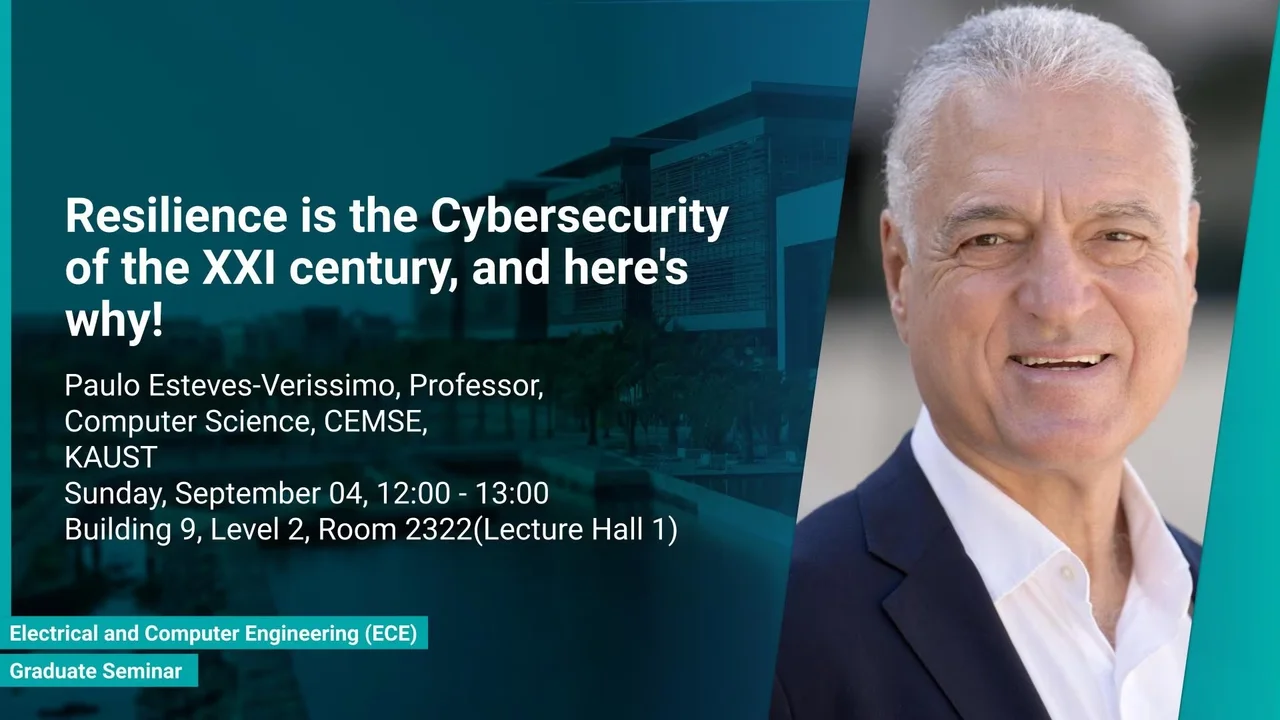
Resilience is the Cybersecurity of the XXI century, and here's why! - 2022-09-04
In a nutshell, Resilient Computing is a new paradigm based on modelling, architecting and designing computer systems so that: they have built-in baseline defences; such defences cope with virtually any quality of threat, be it accidental faults, design errors, cyber-attacks, or unexpected operating conditions; provide incremental protection of, and automatically adapt to, a dynamic range of threat severity; provide sustainable operation.
Overview
Abstract
In a nutshell, Resilient Computing is a new paradigm based on modelling, architecting and designing computer systems so that: they have built-in baseline defences; such defences cope with virtually any quality of threat, be it accidental faults, design errors, cyber-attacks, or unexpected operating conditions; provide incremental protection of, and automatically adapt to, a dynamic range of threat severity; provide sustainable operation. Resilient Computing will be a game changer in the craft of designing computer systems of today and future. Having been part of one of the teams that pioneered intrusion tolerance and resilient computing, I am absolutely convinced of the power of this paradigm. The threat surface presented to present-day computer and network systems became too uncertain, dynamic and polymorphic to be addressed in a static way by isolated disciplines such as security or dependability. Students, teams, organisations, companies, nation-states mastering this paradigm will be at the forefront of cyberspace technology. As such, it will be at the centre of my vision and the inspiration for the research and advanced teaching I propose to foster in RC3@KAUST /(https://rc3.kaust.edu.sa/).
Brief Biography
Paulo Esteves-Veríssimo is a professor at the KAUST University (KSA), and Director of the Resilient Computing and Cybersecurity Center (RC3 - https://rc3.kaust.edu.sa/). He was a member of the Sci&Tech. Comm. of ECSO EU Cyber Security Organisation, Chair of IFIP WG 10.4 on Dependable Comp. and F/T, and vice-Chair of the Steer. Comm. of the DSN conference. He is Fellow of IEEE and of ACM, and associate editor of the IEEE TETC journal, author of over 200 peer-refereed publications and co-author of 5 books. He is currently interested in resilient computing, and its potential to improve classic cybersecurity techniques, in: SDN-based infrastructures; autonomous vehicles from earth to space; distributed control systems; digital health and genomics; or blockchain and cryptocurrencies.